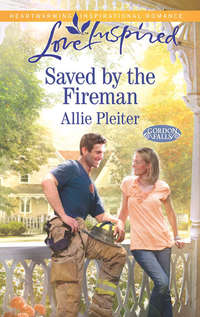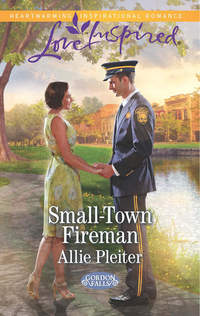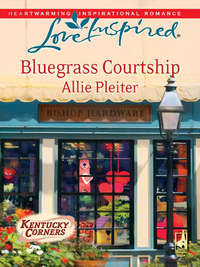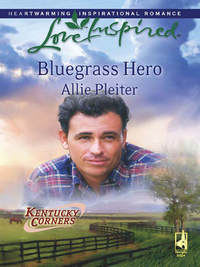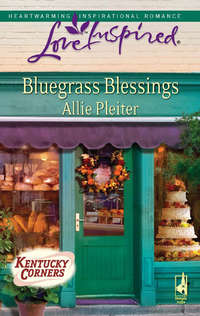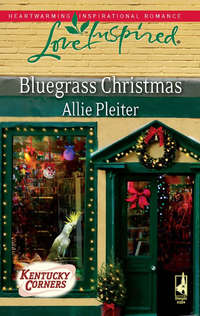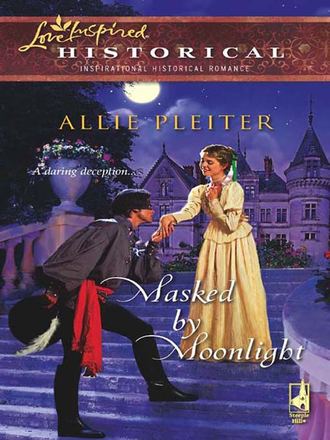
Полная версия
Masked by Moonlight
Georgia eyed her brother. Why did it surprise her that he was managing to capitalize on this? Only Stuart could take something so noble and turn it into a way to sell more papers. Not to mention his sudden partnership in the idea. Our Bandit? Our man George?
“It’s how Dickens got his start, you know,” offered Stuart in response to her look. “Serialized in the dailies.”
Georgia was not Dickens. She wasn’t even sure how she felt about being George Towers. She’d prayed over it for hours after her agreement, waiting for God to put His foot down and end the charade. Instead, she continued to feel as though God had opened this window and wasn’t in any hurry to shut it. It was an idea born of good intentions, given directly to her by the Almighty—or so it felt. But it was still a deception of sorts. One couldn’t ignore Stuart’s manipulation of her, nor their partnered manipulation of the public’s imagination.
But oh, there it was. Sprung to life in the Herald’s wonderfully immortal ink. Sparking some hope in the troublesome world that was San Francisco these days. She thought of the spark in Quinn’s eyes.
“Peach? You’ve got that far-off look again. I always worry when you look like that. I’m not always fond of what shows up afterward.”
Georgia set her teacup down with a resolute clink and stared straight into Stuart’s inquiring eyes. “Stuart, thank you.”
“My pleasure. For what?”
“For being important.”
He merely returned her stare, and she could watch him resign himself to the oddities of his sister. And that’s precisely how Stuart viewed Georgia’s faith: as one of her oddities. “Speaking of my vast importance—not to mention that favor you owe me—Matthew Covington’s coming to dinner tonight.”
“Covington? The dry goods company?” Georgia surveyed the flowers brought in for tonight’s dinner table. They were almost right. Not enough bright colors. The gardener was forever forcing pastels on her.
“He’s that English fellow I was telling you about,” replied Stuart, plucking a blossom from the center of the cuttings for his own lapel. “The flesh-and-blood heir to that dry goods company. He’s here doing the family duty, showing up to play at keeping his eye on things.”
“And, of course, you asked him to dinner.”
Stuart launched into a chorus from Gilbert and Sullivan.
“Because he is an Englishman!
And he himself has said it, and it’s greatly to his credit, For he is an Englishman.
He i-i-i-i-s an E-e-e-ennn-glish-man!”
Just before he ducked around the corner, Stuart looked back at her. “He’s vastly important and very wealthy. I want him to have a grand time while he’s here. That’s where you come in. Fire up your charms, Peach, I want the man dazzled.”
Oh yes, with Stuart there was always a deal.
Matthew eyed his valet as the old man held up the remains of a newspaper. Pages had been sliced to ribbons. “You do know, sir,” said Thompson wearily, “that a large portion of Englishmen sleep at night?”
“Yes, Thompson,” he replied, finishing up his collar, “I’m well aware of that. But no one has yet expired from a bout of sleeplessness, so I gather I’m safe to live another day.” He shrugged into the coat Thompson held out, offering the most challenging look he could muster. The old man merely opened the door and handed Matthew a thick file, looking as if he might nap the minute Matthew left the room.
“Remember your dinner engagement at Stuart Waterhouse’s home this evening. Shall I order up a double set of tonight’s papers, sir, so you can read them and duel them?”
Try as he might, Matthew couldn’t think of a clever enough response. His valet was always getting the last word. Probably what kept him alive all these years.
As Matthew boarded the carriage bound for the Covington Enterprises offices, Matthew’s family duty spread before him like a dull column of orderly figures. He merely had to inspect what was presented and tally up the sum. There seemed so little art to it. Like the predictable shot of a rifle. None of the arc or parry he found in the foil or the whip. Pull. Aim. Shoot. Obey.
“How are you finding San Francisco, Mr. Covington?”
“Lovely, thank you.”
“I’m glad to hear you’re enjoying your stay.” Miss Waterhouse gave him a charming smile. “San Francisco is not…everyone’s taste,” she continued. “I’m afraid we’ve not quite grown into our big-city shoes.”
“What my sister means is that we’re still a bit rough around the edges, Covington,” interjected Stuart.
“Not at all, Waterhouse.” Matthew forced his gaze away from the man’s sister. “I find it refreshing to be someplace where everything isn’t hundreds of years old. Tell me, Miss Waterhouse, aside from the very formidable task of keeping an eye on your brother, how do you spend your days?”
She caught the jest, and smiled at him. Her eyes turned up just enough at the corners to give the impression that she was keeping a secret.
“Attending to Stuart’s conscience is only one of many interests, Mr. Covington. I play the harp, and I work a great deal with Grace House, our local mission. It serves the city’s many needy families. But you are correct—Stuart is my most pressing cause.”
“I spend hours trying to outwit my sister, Covington.” Stuart gave her a look that held both boundless annoyance and deep affection.
“All of San Francisco thanks you for your efforts, Georgia,” replied another of the evening’s dozen guests, Covington Enterprises’ local manager, Dexter Oakman.
“And what would you say to this new fascination of ours, Covington?” asked Stuart. “Have you got any such heroes in Britain?”
“Pardon?”
“Robin Hood!” Oakman chimed in behind a mouthful of potatoes. “He’s an English hero, isn’t he?”
“Yes, he was,” Matthew answered carefully. “The legend overshadows the real man, but often the best heroes are embellished, wouldn’t you say?”
“Oh, no, Mr. Covington,” Miss Waterhouse replied. “I quite disagree. The very finest heroes are the ones that aren’t fictionalized.”
“Fine, perhaps, but exceedingly rare,” Matthew stated.
His hostess held an indefinable look in her eye as she murmured, “I would not argue with you there.”
Stuart lifted his glass. “To heroes, then.”
“Will we drink to all of them, or just this new fellow in your paper, Stuart?” inquired Oakman.
He rolled his eyes. “Drink to the Bandit if you must, but I’d much rather you drink to me.”
“One must first do something heroic, Stuart,” teased his sister.
He sighed dramatically. “To be so misunderstood.”
“Is the fate of most great men,” Matthew finished for him.
“Ah, Covington, I knew you’d come through for me. To our Bandit, then, and great—or should I say greatly misunderstood—heroes everywhere.”
“And what do you think of our Bandit?” asked Mrs. Oakman, a round, rather witless-looking woman who had been engrossed in the minute dissection of her pork for most of the meal.
“Bandit, Mrs. Oakman?”
Stuart made a gesture as though he’d been stabbed through the heart. “I’m wounded, Mr. Covington. You don’t read my paper?”
Well, that had been foolish. Thompson had truly seen to it that two copies came up to the room, but Matthew had fallen asleep over them, too exhausted to read the issue. And now Waterhouse knew. This trip was supposed to be Matthew’s declaration that he could carry the family name with respect and reserve. He didn’t need Georgia Waterhouse’s fascinating eyes spurring him on to what his father called “his fantastic talent for making a spectacle of himself.” Oh, the evening had taken a bad turn.
“Forgive me, Mr. Waterhouse. I pledge my loyal reader-ship for the rest of my visit.” It wasn’t a very good recovery, but it would have to do.
Evidently not one to miss an opportunity, Stuart handed him a copy of the Herald the minute dinner had ended. Folded over to a back page, where some sort of serialized story had been printed.
Matthew read the first four paragraphs.
What?!
He quickly read them again, squelching the urge to gasp aloud.
Chapter Four
No.
Impossible.
Matthew sat down, hoping he showed no sign of the storm going off in his gut. He read the rest of the story, willing himself to look casual. Evidently the other night had been a spectacularly bad idea.
Don’t jump to conclusions, he admonished himself. He knew who had witnessed the conflict in the alley that night, and none of them were reasonably able to document it. Several details were different.
Smile and leave it, Covington. Leave it alone. Leave it…“Who is this George Towers?”
“Fine storyteller, isn’t he? He’s one of my, shall we say, hidden assets. The tale’s been the talk of the town today. I hadn’t been eager to run fiction in my paper until now, but I must admit I’m insanely pleased.”
Talk of the town. Marvelous. Father would be so very…intent on killing him.
“I’d imagine you are.” Waterhouse had said fiction, hadn’t he?
“We haven’t got a bumper crop of real heroes in San Francisco these days, so this author came to me with the idea of making one up. Seems to have hit a nerve. We may give your man Dickens a run for the money, eh?”
“Indeed…” That was all Matthew could spit out.
“I’ll run one of these every week if the attention keeps up,” Stuart announced.
“If I know you, Stuart,” chimed in Dexter Oakman, “you’ll run two.”
Matthew made a mental note to never step out of his bedroom door after dinner ever again.
Which was ridiculous, wasn’t it? Yes, the Bandit used a whip, and he wore dark clothes. And he had saved a child—granted, it was a small girl in this story, but in other details the story was alarmingly similar to what had happened.
Stop it. This was pure coincidence. It had nothing to do with Matthew. He had nothing whatsoever to do with bandits, black or otherwise.
He had just gotten his doubts under control when Georgia Waterhouse walked into the room.
“There’s someone at the door to see you, Stuart. He’s being rather insistent. Something about the presses.”
She was slim and graceful. Her skin was the palest he’d ever seen, but it lacked the blue tint that lurked in so many of London’s pale complexions. No, hers was infused with rose and gold.
Oh, Covington, his brain cautioned, now’s hardly the time.
Stuart left the room barking instructions for Georgia to stay and seek Mr. Covington’s opinion of his paper. The Englishman had the newspaper in quite a grip and for some reason she noticed his thumb was lying across the “George” of her byline.
“It seems my brother’s not won the instant subscriber he was expecting, Mr. Covington.”
“Pardon?” their guest swallowed.
“I gather you’re not fond of the Herald?”
“Why would you say that?” he replied quickly.
“You’re holding it as if it were a goose you planned to behead for supper.”
It proved an effective metaphor. Covington made such a show of loosening his grasp on the paper that he nearly dropped it. Dexter Oakman laughed.
“Perhaps I should say I found it rather gripping reading,” Covington said wryly.
She smiled. “Stuart would like that.”
The Englishman raised the paper again with a far gentler touch. “What is your opinion of your brother’s venture into fiction, Miss Waterhouse?”
In all the hubbub about the story, Mr. Covington had been the first person to ask her opinion. And, perhaps most pleasing of all, he looked at though he really desired to know, and wasn’t just making polite conversation. Perhaps it would not be such a difficult favor to keep him entertained, as Stuart had asked.
“It is one of the rare things Stuart and I agree on.”
“I’ve no doubt,” he murmured, in such a way as to make Georgia wonder if he’d intended to say it aloud. There was something, a sort of puzzlement, coloring his words. He stared at her for the briefest of moments before shifting his attention to the fire. He had extraordinary eyes, Georgia thought. Dark blue, beyond indigo. As if God, forgetting that most dark-haired men had brown eyes, had given him blue eyes at birth, and then darkened the blue to cover the oversight. The inky blue-black of stormy waters. They strayed back to her for a moment, and she quickly looked away.
“Who is this George Towers? A local writer?”
“I know many things about the way my brother does business, Mr. Covington.”
“But…”
“But I wouldn’t be privy to half of them if I didn’t know the value of a secret.” Georgia allowed herself to hold his eyes for a moment. “Especially one that is becoming rather sought after.” People wanted to know who George Towers was. The office had received numerous inquiries over the course of the day. Georgia was almost heady with pleasure at readers’ response to her story. Having it be a secret only intensified the effect. She imagined she had looked like the cat that swallowed the canary all day.
Stuart burst back into the room. “All is well—or at least until the next disaster. Thank you, Peach.” He gave her an affectionate peck on the cheek.
“You’re welcome,” she said, preparing to return to the ladies in the salon.
“Stay just a moment.” Stuart took her hand. “I want you to hear what our guest thinks of the Black Bandit.”
“I’ve yet to finish the story, Waterhouse,” Covington protested. “You can’t very well ask me to comment when I’ve read only a handful of paragraphs.” He didn’t much care for the article. Georgia could tell. And she knew in a heartbeat what Stuart was going to do next. Covington didn’t stand a chance.
“Well, then, read the thing.” Her brother smoothed out the crumpled paper and motioned to one of the high-backed chairs near the fire. “Better yet, read it aloud to all of us.”
“Stuart…” Georgia began, thinking he was going a shade too far.
“No, really, Peach. The test of any good story is how it sounds aloud. Covington, you’ve a fine voice—that accent and all. Why don’t you read it to us?”
“I…”
Stuart was having fun with her, Georgia knew. Giving her a chance to secretly enjoy her talent. It was a dreadful thing to do to a guest, especially one who clearly didn’t relish the prospect, but she could help herself no more than Stuart could. The opportunity to sit and watch people listen to her words was far too enticing. She wanted to hear him read it. Very much.
“Please, Mr. Covington,” she found herself saying. “Indulge us.”
“Men who refuse Stuart Waterhouse live to regret it,” teased Oakman, “generally in the next day’s headlines!”
Covington knew he was cornered. Gathering his dignity, he sat down, took a deep breath and began to read the inaugural installment of the Black Bandit’s adventures.
His voice flowed on, deep and musical. But there was an odd note in it, whether of shock or of fascination, she couldn’t tell. And his whole body seemed to be reacting to the story, albeit subtly. His hands clenched the margins, and he shifted his weight two or three times. He stumbled on the paragraph that described the Black Bandit as tall and lithe, dark and powerful.
He put the issue down quickly as he finished, and Georgia thought, Well, here’s one reader not won over by the Black Bandit.
Chapter Five
Desperate for the sleep that continued to evade him, and determined not to set foot outside and risk any association whatsoever with any bandits, real or imagined, Matthew settled for swinging his fencing foil around the hotel room as quietly as possible that night. He tried to block and parry as softly as he could, since he’d already roused Thompson once by knocking over a water pitcher. Even so, Matthew’s final thrust skewered an item from the fruit basket on the sideboard.
He hoisted the fruit high, its weight making the foil wobble slightly as a sticky stream of juice began sliding down the blade.
Pathetic.
His San Francisco visit was not going well. And if he didn’t sleep soon, he wasn’t going to have a lick of business sense by the time he visited the shipping docks tomorrow. Matthew thought it a cruel irony that while he was forced to spend his day listening to the sleep-inducing rhetoric of Dexter Oakman, the combination of a silly newspaper story and a stunning woman made nocturnal sleep impossible.
He stared at the pair of Herald issues that lay on the table, taunting him. They were staring back, ganging up on him, their dark headlines glaring unblinkingly. No, he thought, nearly declaring it out loud, I will not read it again.
It wasn’t as if he needed to. He’d reread the piece enough times that he could practically recite it. Checking over and over for hints and similarities, for any sign that George Towers had been hiding in some dark corner of that alley. No, it was impossible.
Wasn’t it?
Matthew took his handkerchief and wiped down the foil, licking sweet juice off one finger.
Georgia Waterhouse. What was it about her that intrigued him so? Some of it was obvious. Her relationship with her brother fascinated Matthew. He’d known sibling teasing from his younger brother, David, but there was far more competition than companionship between them. David was highly critical of Matthew, the principal heir. Entirely too eager, he suspected, to have the position for himself. David and his father seemed to agree on so much in life. Matthew had long felt that Covington Senior had never quite forgiven his wife for having their sons in the wrong order.
No, affection was a longtime stranger to the Covington household. In recent years the fighting had cooled to an impassionate, rigid tolerance.
Stuart and Georgia, on the other hand, had something unique, an obvious but indefinable bond. As if they knew a secret the rest of the world would never share. Matthew had seen such a look flash between his twin cousins. Something beyond language or gesture.
Then again, knowing Stuart Waterhouse’s social and professional prowess, chances were those two did know a few secrets the world might clamor for. Hadn’t she said she’d been “privy” to a few of Waterhouse’s “hidden assets”?
A beautiful woman with big secrets. Perfect.
The downstairs clock chimed three. Georgia adjusted her pillow for the thousandth time. Sleep rarely eluded her, and she found this fit of wakefulness annoying. Try as she might, even with the help of her favorite psalms, her mind refused to quiet itself for the night.
Granted, it had been a splendid day. Spending hours watching people carry the Herald to and fro, listening to visitors at the newspaper office gossip and wonder about George Towers and his captivating Bandit.
“My captivating bandit,” she declared to the curtain fringe, which offered soft, frilly nods in the breeze. She cast a sheepish glance heavenward. “Well, ours. Thank you, Father,” she sighed, “for using Stuart and me in such a…satisfying way. Even if Stuart doesn’t see it as such.”
Georgia rolled over and elected to take stock of the evening. Entertaining wasn’t really her gift, so perhaps analyzing the dinner and its guests might sufficiently bore her that she could sleep. She was a competent enough hostess—goodness knows Stuart invited people over constantly—but not the kind whose soirees made the papers. At least not without her brother’s direct intervention. He usually whipped up a dramatic paragraph or two when the mood struck him, more for the titillation of his dinner guests than any further need to see his name in print. Georgia knew full well it was Stuart’s power, and not her social prowess, that lured guests to the table. In truth, that suited her fine.
The Oakmans were dull but useful, present tonight because of their association with Covington Enterprises, Georgia guessed. No, it was clear Stuart had focused his attention on Matthew Covington. Aside from her brother’s passion for all things English, Georgia guessed he’d sought out Covington—and asked that she do the same—for far more than his accent. The name Covington was familiar to businessmen in San Francisco. Their import holdings were considerable; Stuart told her that Covington Dry Goods kept half the finer stores in San Francisco stocked with European products. Stuart deemed them important enough that he made sure any Covington representative who came to town appeared at the Waterhouse table. The elder Covington had even been to dinner once, although a long time ago. Georgia didn’t remember him looking like the man who’d come to dinner tonight.
What she’d noticed most about Matthew Covington was the extraordinary command he had of his body, which was athletic and graceful. Stuart galloped around a room, Oakman toddled, but Matthew Covington strode. It seemed an odd thing to notice—not like hair or eyes or a smile or such—but it struck her in a way she couldn’t put a name to.
Georgia wondered how high those British eyebrows would go if he knew a woman had come up with the story of the Black Bandit. And penned it.
The clock chimed half past. No reasonable woman would be up at three-thirty in the morning considering her publishing strategies.
Well, then, she thought as she reached for her wrap, if Georgia Waterhouse oughtn’t to be up, perhaps George Towers can be awake.
She smiled as the opening sentence came to her. Why not?
Dipping her pen, she began:
“The Black Bandit finished cleaning his sword as the sun dawned over the mountains. Sleep had eluded him that night….”
“I had one hundred seventy-three reasons to decline your brother’s invitation,” Matthew said when he escorted Miss Waterhouse to an event a few days later.
Why he chose this to be the first thing out of his mouth when she entered the parlor, he couldn’t say. He’d meant it as a compliment, but as the words escaped his lips he realized how insulting they could be.
Fine opener, Covington. Did you leave your manners in England?
Thankfully, she seemed to guess his intent—and his instant regret—for a small grin played across her face. Her response pleased him.
“Yet, at the moment,” he continued in complete honesty, “I can’t recall a single one of them.”
“A clever save, Mr. Covington. Perhaps you might fare better if you told me why you said yes,” she countered, adjusting the ribbon on her hat.
“First off, it’s been made quite clear to me that one takes one’s life into one’s own hands when declining Stuart Waterhouse.”
“True.”
“And secondly, you make infinitely better company than sums and inventories.”
She scowled. “I’m afraid I don’t find that much of a compliment. In my opinion, most of the world makes better company than sums and inventories.”
“It depends on the sums,” replied Matthew, holding the door open for her as they stepped out into the afternoon light, “and very little of most of the world could convince me to endure a musicale.”
“Endure? But it’s Gilbert and Sullivan. At Tivoli Gardens, no less. Stuart’s favorite—and very British.”
Matthew grimaced and offered her his elbow. “My point exactly. I don’t like tea, either, you know.”
She laughed. A lovely, bright laugh. “Well, there will be some of that, but I expect Stuart might be able to find you a cider. He’ll be joining us a little while after the concert starts. Some paper emergency.” She sighed. “There’s always some paper emergency.”
It was a grand spring day. Matthew felt the crisp bay breeze—and the delightful company—lift his spirits. Admit it or not, he’d been wondering how he could see her again. He’d have said yes if Stuart had asked him to escort Georgia to a quilting bee. “I expect your brother thrives on crises, doesn’t he?”
“He seems to. Anything less would bore him.”
“Stuart Waterhouse bored. It wouldn’t be a pretty sight.” Matthew gave a chuckle, thinking of how the man had sped around the room at the dinner party. How he seemed to everywhere at once, and hardly ever sat down.
Georgia suddenly stopped walking. She turned and looked up at Matthew with intensity, the sun playing across her hair and cheeks. “I spend a tremendous amount of time talking about Stuart, Mr. Covington.” She lowered her eyes, as if her own comment caught her by surprise. “I…I should like it if that were not the case with you.”



